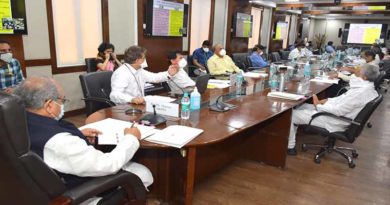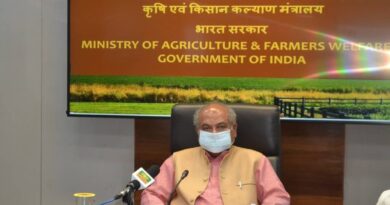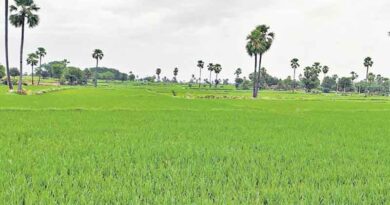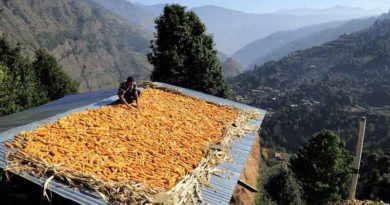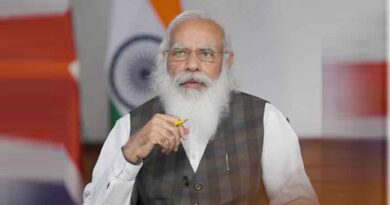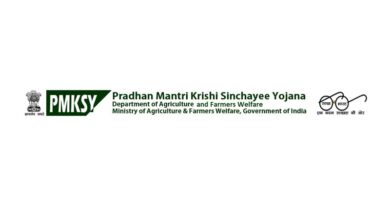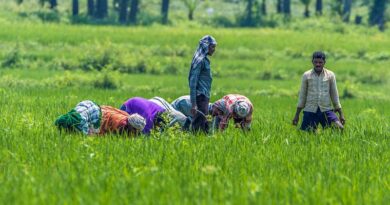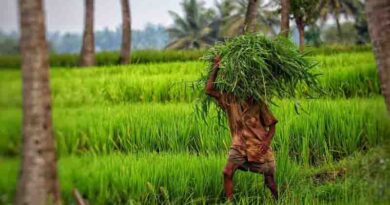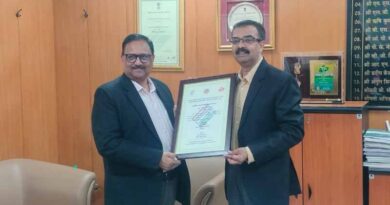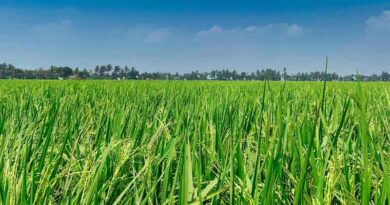National Kharif Conference 2023: Agriculture Ministry sets production target of 332 million tonnes
04 May 2023, New Delhi: Union Agriculture Minister, Mr. Narendra Singh Tomar inaugurated the National Conference on Agriculture for Kharif Campaign 2023-24 yesterday at NASC Complex, New Delhi. Addressing Conference, he emphasized that agriculture remains the prime pulse of the Indian economy and is at the core of the socio-economic development of the country. It accounts for around 19 percent of the GDP and about two-thirds of the population is dependent on the sector.
Mr. Tomar expressed happiness that India’s agriculture sector has been witnessing robust growth with an average annual growth rate of 4.6 percent over the last six years. This has enabled the agriculture and allied activities sector to contribute significantly towards the country’s overall growth, development, and food security.
Crop-wise target for Kharif 2023
The objective of this conference was to review and assess the crop performance during the preceding crop seasons and fix crop-wise targets for the Kharif season in consultation with State Governments, ensure the supply of critical inputs, and facilitate the adoption of innovative technologies to enhance production and productivity of the crops.
The national target for total food grains production is set at 3320 lakh tonnes for the year 2023-24. The target for production of pulses has been fixed at 292.5 lakh tonnes compared to 278.1 lakh tonnes this year and oilseeds production will be increased from 400 to 440 lakh tonnes in 2023-24. Total Shree Anna production has to be increased from 159.1 lakh tonnes in 2022-23 to 170.0 lakh tonnes in 2023-24. The strategy would be to increase area through inter-cropping and crop diversification and productivity enhancement through the introduction of HYVs and the adoption of suitable agronomic practices in low-yielding regions.
The priority of the government is agro-ecological based crop planning for the diversion of land from excess commodities like rice and wheat to deficit commodities like oilseeds and pulses and high-value export-earning crops. The special Mustard program was initiated during Rabi 2020-21 that has brought the most spectacular results. Mustard production has jumped by 40% from 91.24 to 128.18 lakh tonnes in the last 3 years. The productivity saw an 11% increase from 1331 to 1447 kg/ha. The area under rapeseed & mustard enhanced by 29% from 68.56 lakh ha in 2019-20 to 88.58 lakh ha in 2022-23.
Foodgrain Production Estimates
As per 2nd Advance Estimates (2022-23), the production of foodgrains in the country is estimated at 3235 lakh tonnes which is higher by 79 lakh tonnes than the production of foodgrains during 2021-22. Record production is estimated of rice, maize, gram, pulses, rapeseed and mustard, oilseeds, and sugarcane.
The total production of sugarcane in the country during 2022-23 is estimated at record 4688 lakh tonnes which is higher by 1553 lakh tonnes than the average sugarcane production. As per the 3rd Advance Estimates of Horticulture, a record 3423.3 lakh tonnes of horticultural production are estimated in 2021-22 which is 77.30 lakh tonnes higher than production of 2020-21.
Mr. Manoj Ahuja, Secretary of the Department of Agriculture & Farmers’ Welfare, said that the country is maintaining an increasing trend in food grain production since 2015-16. The government has taken measures to augment crop and livestock productivity, ensure certainty of returns to the farmers through price support (Minimum Support Price), promote crop diversification, and made focused interventions to enhance credit availability, facilitate mechanization, and boost horticulture and organic farming. As a result, agriculture exports touched a historic high growth in 2021-22. As compared to the previous year 2020-21, the agri and allied export has increased from 41.86 billion USD in 2020-21 to 50.24 billion USD in 2021-22 i.e. an increase of 19.99%.
For the modernization of agriculture and to facilitate farmers, the government launched the SATHI (Seed Traceability, Authentication, and Holistic Inventory) Portal and Mobile App, a Centralized Online System for seed traceability, authentication, and inventory designed to deal with the challenges of seed production, quality seed identification, and seed certification.
Mr. Arun Baroka Secretary (Fertilizers) assured a timely supply of fertilizers for the forthcoming Kharif season. The government also announced to convert more than 3.25 lakh fertilizer shops across the country as Pradhan Mantri Kisan Samruddhi Kendras. These will be centers where farmers can buy not only fertilizers and seeds but also implement soil testing and avail useful information about farming techniques. Further, he provided the information about Integrated fertilizer management system (IFMS) for detailed information about fertilizer and related issues. In his deliberation he has given the information on the PM PRANAM and PM Kisan Samridhi Kendra he advised farmers should use organic inputs.
Dr. Himanshu Pathak, Secretary (DARE) and Director General, ICAR shared recent technological advances made in agriculture for the benefit of the states and prepared a plan of development accordingly. He stressed on using bio-fortified and climate-resilient varieties to fulfill the dream of food and nutritional security for all. Further in his deliberation, he has highlighted the improvement of varieties that are climate resilient, and newly released and biofortified varieties should be used.
Also Read: Verdesian Life Sciences awarded the Global Leadership Award at BioAg India 2023
(For Latest Agriculture News & Updates, follow Krishak Jagat on Google News)


